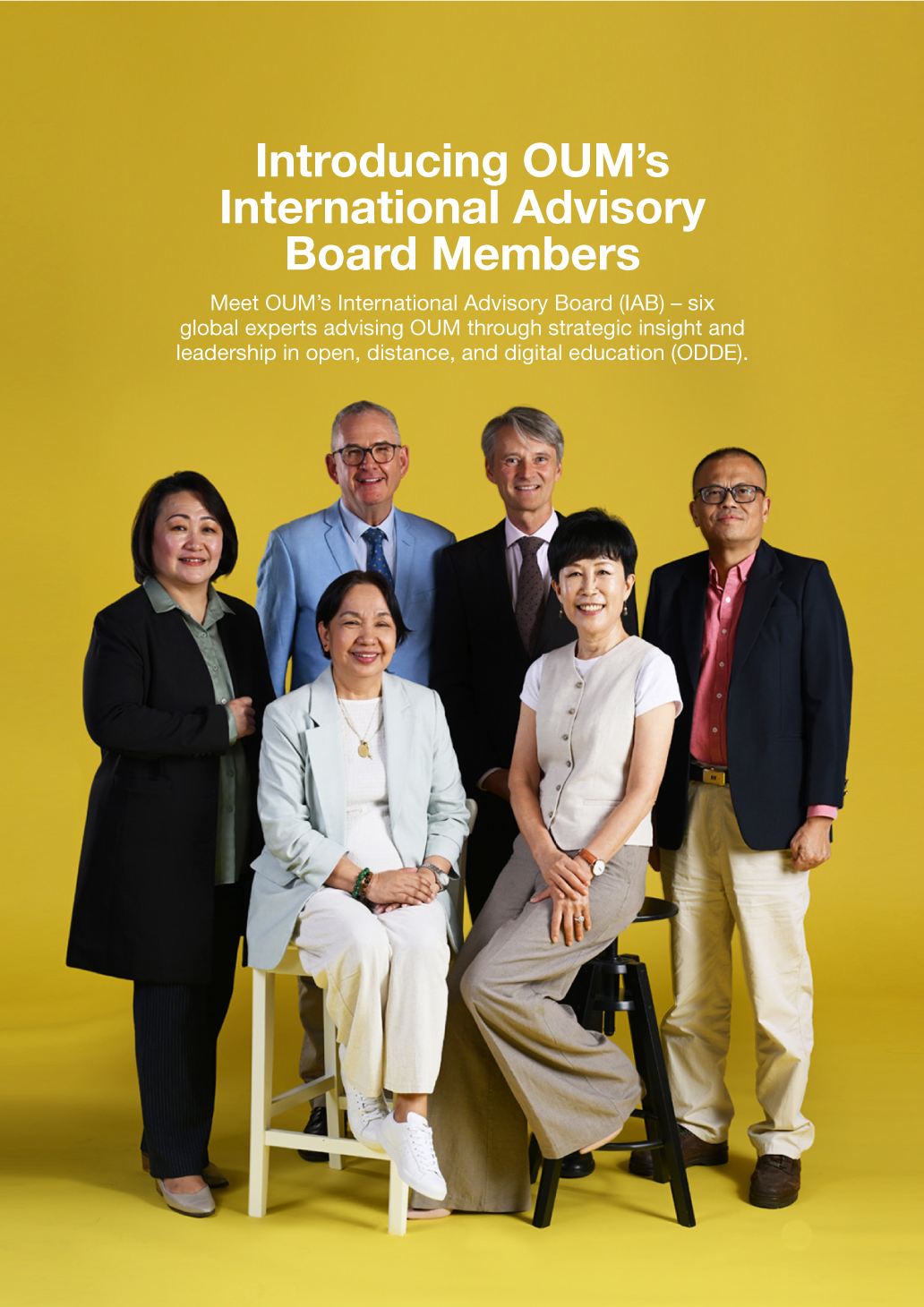
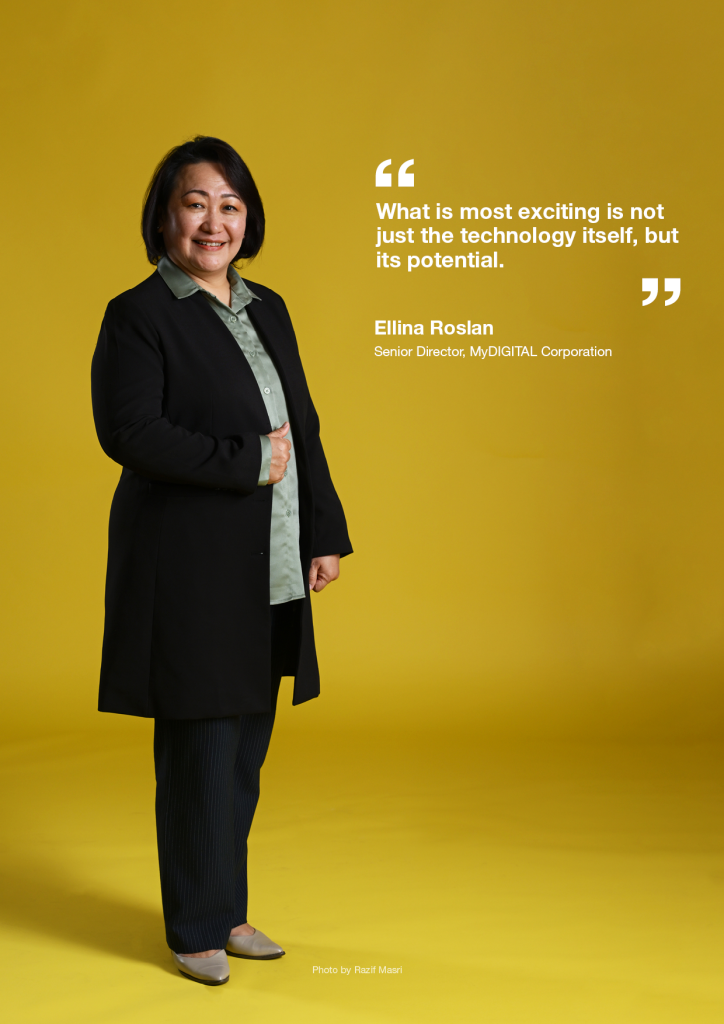
inspired: Based on your experience, what trends in digitalisation and/or digital education excite you most, and why?
Ellina Roslan: One of the most exciting trends in digitalisation is the growing emphasis on human-centric digital education that bridges skills with opportunity. We are seeing a shift from traditional, one-size-fits-all models toward more adaptive and inclusive learning powered by AI, data analytics, and immersive technologies. This means digital education can now be tailored to individual learning styles, providing Malaysians with flexible, accessible, and lifelong learning opportunities.
Equally inspiring is the rise of industry-linked micro-credentials and digital badges, which allow learners to acquire in-demand skills quickly and showcase them in the workforce. This creates a more agile talent pipeline, supporting our national vision for a digital economy.
What is most exciting is not just the technology itself, but its potential to democratise education, close skill gaps, and empower citizens to thrive in a rapidly changing digital landscape, ensuring no one is left behind.
inspired: If you could share one hope or prediction for how digitalisation will shape our work and lives in the next five years, what would it be?
Prof Insung Jung: My hope is that in the next five years, digitalisation – especially through AI – will help us move closer to personalised education for all, a vision long cherished by open and distance educators. By enabling adaptive tutoring, timely feedback, and differentiated pathways, digitalisation can transform access into participation, ensuring learners from diverse and resource-constrained backgrounds are supported. This would mark not just efficiency gains but a qualitative leap in learner experience, consistent with constructivist and learner-centred theories.
If this hope does not materialise, it will be because we focused too much on tools and too little on the human and ethical dimension of learning. Technology is not only about efficiency; it is also about justice, inclusivity, and fairness. As OUM highlighted in its 25th anniversary theme, “Humanising Digital Education”, digitalisation must serve people first; otherwise, it risks reducing education to data-driven processes and losing its human purpose.
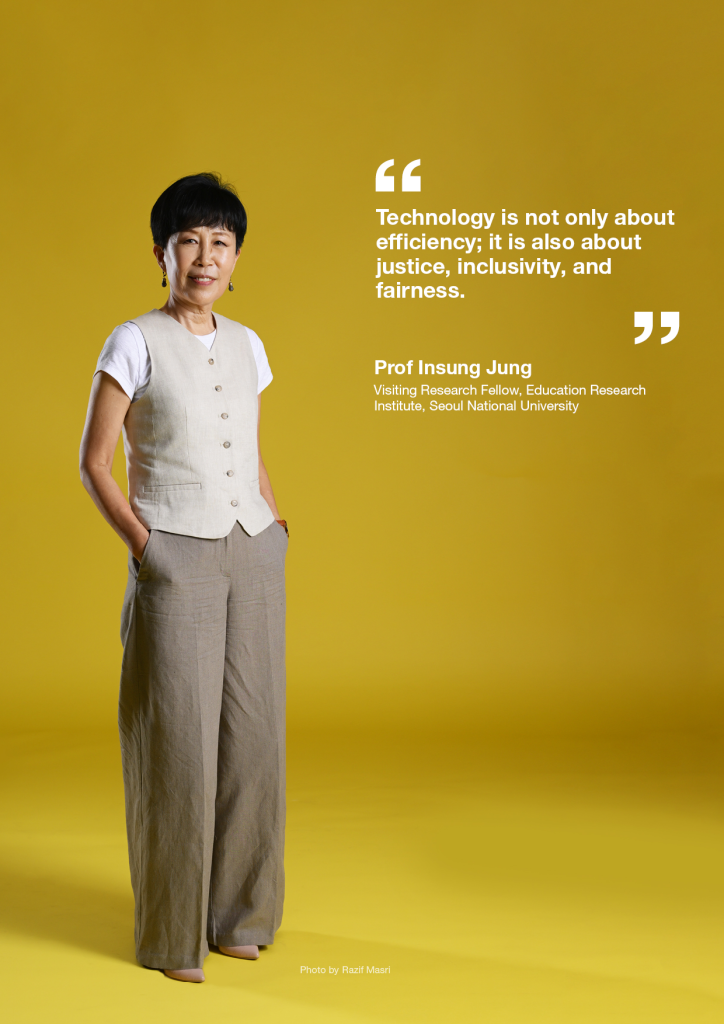
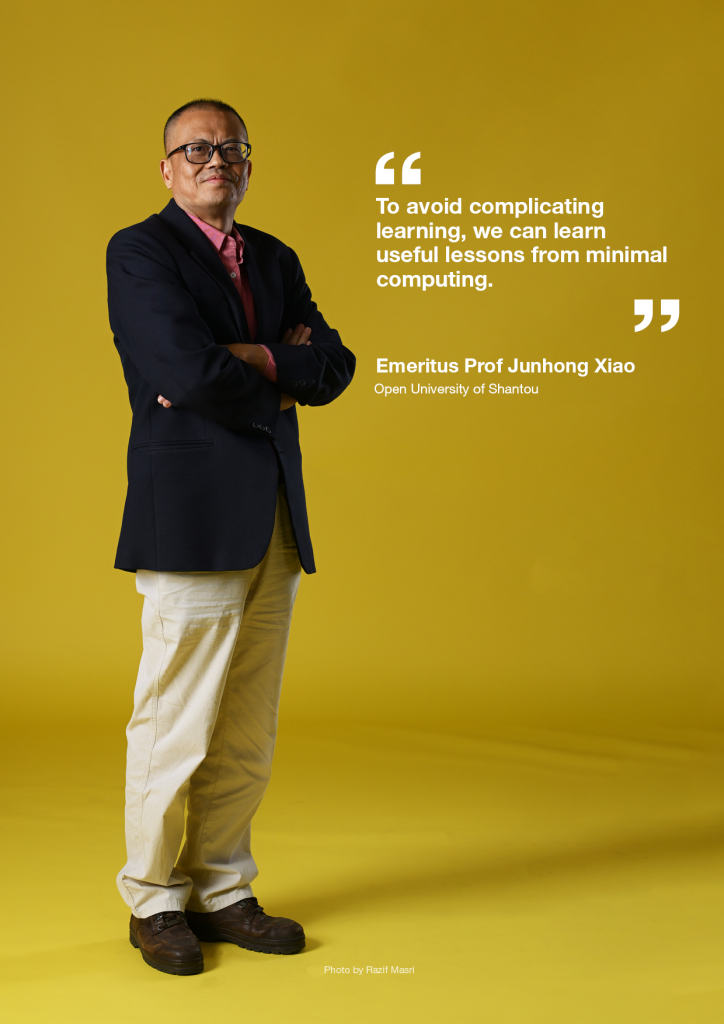
inspired: Are there ways in which digitalisation has complicated learning or work, rather than simplifying it?
Emeritus Prof Junhong Xiao: Digitalisation is often portrayed as a tool of efficiency, able to streamline learning for all. However, whether digitalisation complicates or simplifies learning depends on who uses what digital technology to do what, and in what circumstances. What is convenient and simple for one person may turn out to be troublesome and complicated for another.
To avoid complicating learning, we can learn useful lessons from minimal computing, a way of thinking about digital humanities practice whereby innovation is not defined by newness, scale, or scope. Minimal computing champions the use of only those technologies necessary and sufficient for a particular purpose in a particular context. In other words, knowing which problems to be fixed, what resources are available, which problems to be prioritised if we cannot solve all of them at once, and what we are willing to give up can ensure the right technology is used for the right purpose by the right learners, hence “simplifying” learning.
inspired: Have you seen examples where digital tools have truly made a positive difference, whether in business, government, education, or community work?
Prof Olaf Zawacki-Richter: Yes, I have seen the emergence of educational technologies and digital tools that make a transformative difference, particularly in the field of open, distance, and digital education (ODDE). Historically, the arrival of the internet and computer-mediated communication marked a true paradigm shift in the 1990s. It fundamentally changed how distance education was designed and delivered, moving from correspondence models to interactive, networked forms of teaching and learning. This innovation not only expanded access but also brought ODDE into the mainstream of higher education worldwide.
Today, we are likely witnessing another such turning point with the rapid development of generative AI. These tools are beginning to reshape how we teach, learn, and conduct research. They open new possibilities for collaboration, content creation, and personalised learning at scale, while also raising important questions about responsible and ethical use. Just as the internet revolutionised ODDE, AI has the potential to shape the next era of educational innovation.
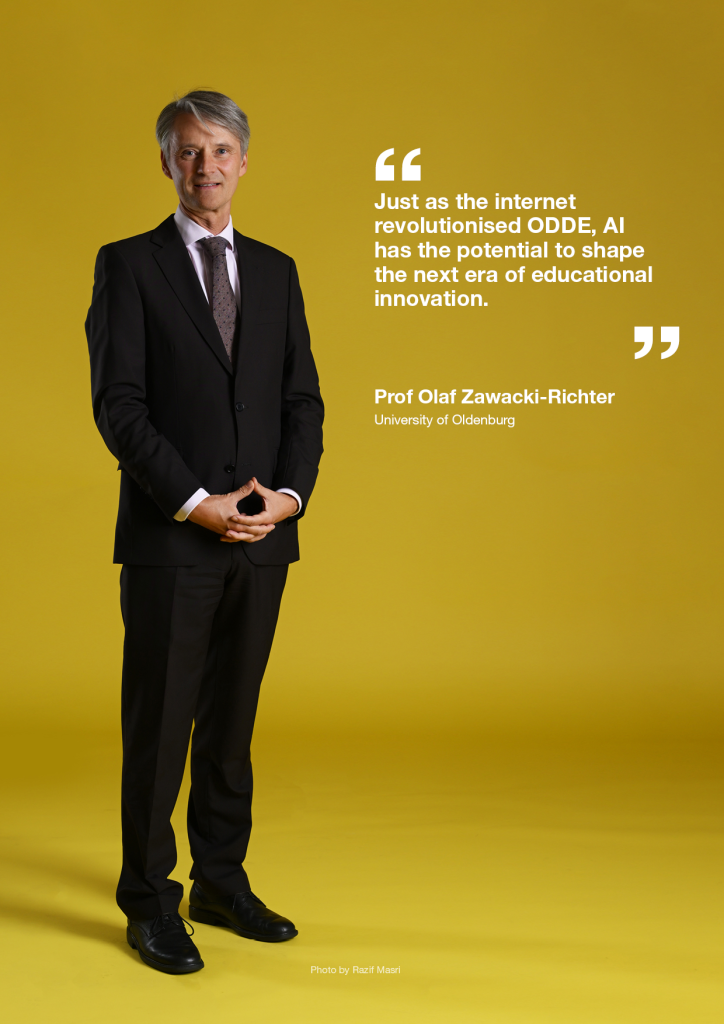
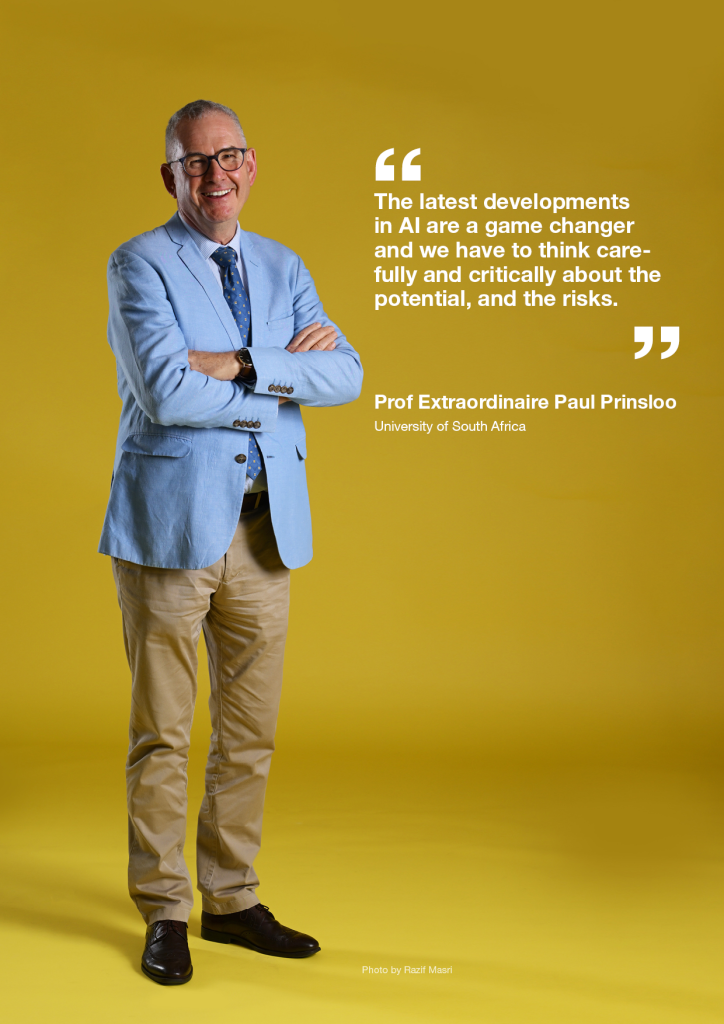
inspired: As we become more reliant on technology, maintaining the human element becomes increasingly important. How can we ensure that digitalisation enhances rather than replaces human interaction and connection in our daily lives and work?
Prof Extraordinaire Paul Prinsloo: Throughout human history, technologies shaped not only who we are but also how we related to each other, how the tools allowed us to understand the world around us and how we fitted into broader ecologies on planet Earth. As higher education becomes increasingly digitalised, we are constantly reminded that we should not “fall behind”, that we should adopt the latest technologies or face the danger that our pedagogies and curricula will become obsolete.
We should, however, not be blind to new opportunities offered by, for example, advances in Artificial Intelligence (AI) and specifically Generative AI (GenAI). The latest developments in AI are a game changer and we have to think care-fully and critically about the potential, and the risks.
inspired: What opportunities and challenges do you see for universities like OUM in an increasingly digitalised world?
Prof Melinda dela Peña Bandalaria: The increasingly digitalised world provides both opportunities and challenges for open universities like OUM. OUM can claim leadership in education, being among the innovators integrating digital technologies into its teaching and learning ecosystem. OUM’s tagline “Humanising Digital Education” already positions the university uniquely, emphasising people-centric innovation, which also implies access and inclusion.
The online instructional delivery system enables the university to reach non-traditional lifelong learners who cannot be part of the conventional education system, such as working adults and older learners, who increasingly account for a significant portion of society and may have to be reskilled for possible reintegration into the various industries. The digitalised education ecosystem also allows OUM to innovate in learning programme design, such as micro-credentialing, and provide learning opportunities that are relevant to learners from different contexts. These provide another revenue stream and sustainability model, strengthening both financial and social acceptability pillars.
The challenges include potential competition from other academic institutions that are already in, or planning to enter, online learning. At the same time, OUM must maintain a delicate balance between widening access and inclusion on the one hand, and ensuring financial sustainability on the other. Equally important is promoting a culture of innovation anchored on the university’s core values among its faculty and staff. University leadership plays a significant role in seizing opportunities and managing the challenges posed by the digitalised world.
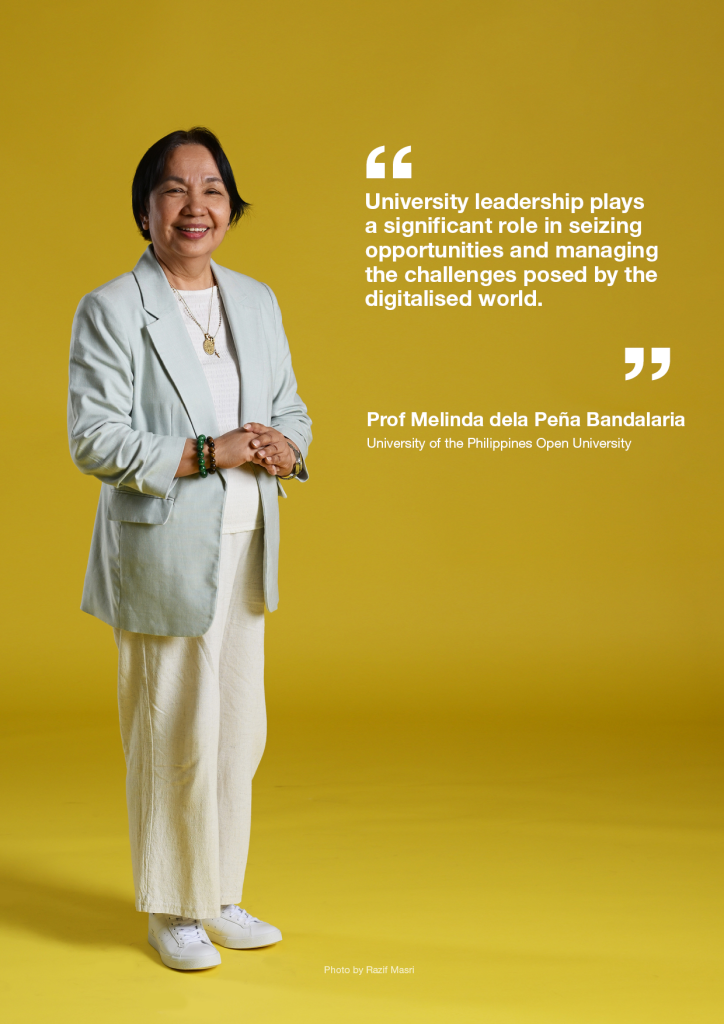

inspired is OUM’s not-for-profit popular journal on the 3Ps – practice, policy and philosophy – of open, distance, and digital higher education (ODDE). Published three times a year, it engages global scholars, policymakers, practitioners, learners, and other stakeholders, as well as a general readership seeking the latest insights and perspectives on ODDHE.
Menara OUM, Block C, Kelana Centre Point, Jalan SS7/19,
Kelana Jaya, 47301 Petaling Jaya, Selangor, Malaysia
+603-7801 1800 (General Line)
inspired@oum.edu.my

Copyright © Open University Malaysia 2018 – 2025 inspired All Rights Reserved. No part of inspired may be reproduced in any form or by any means without the written consent of the Editor of inspired.